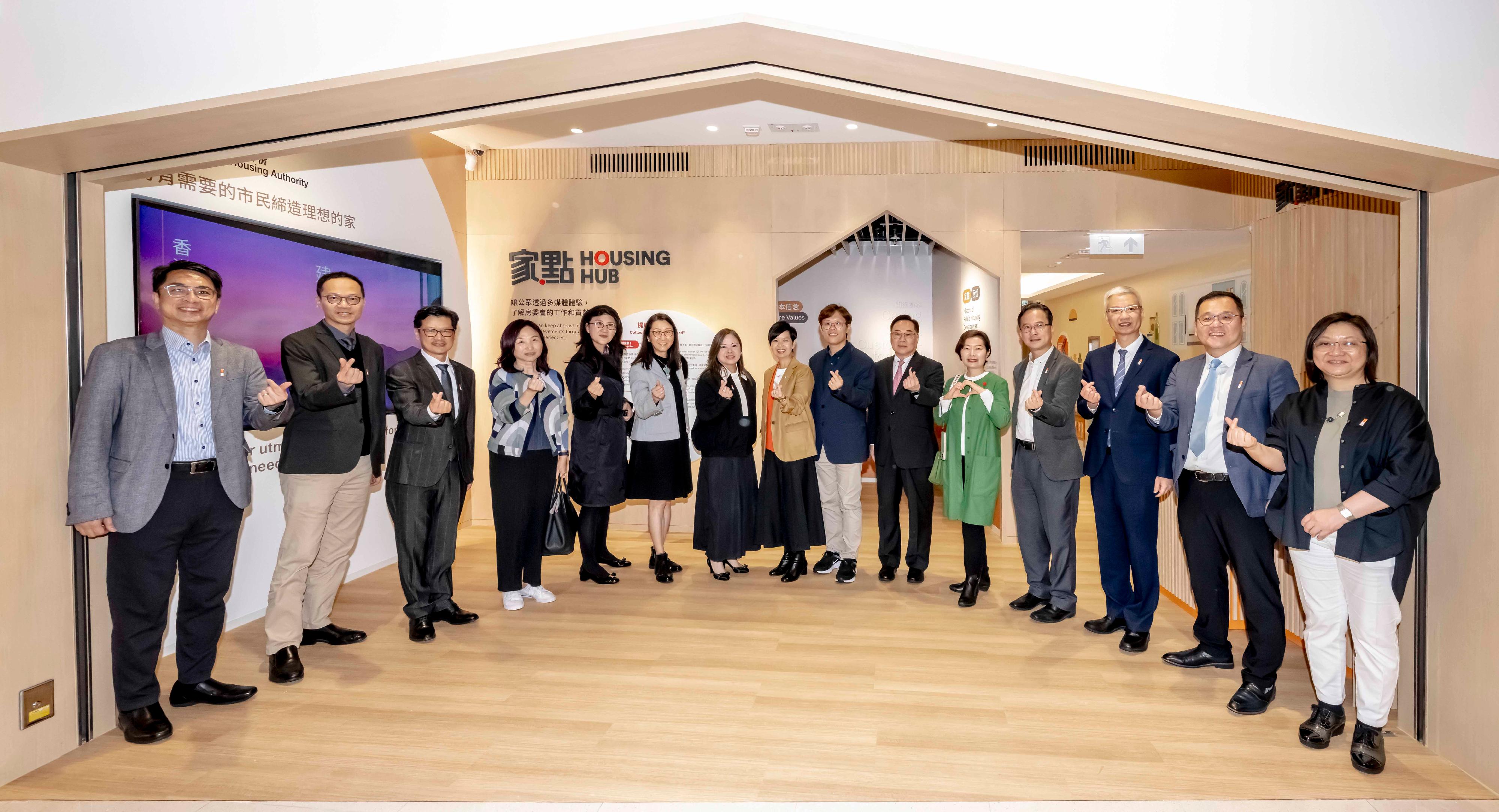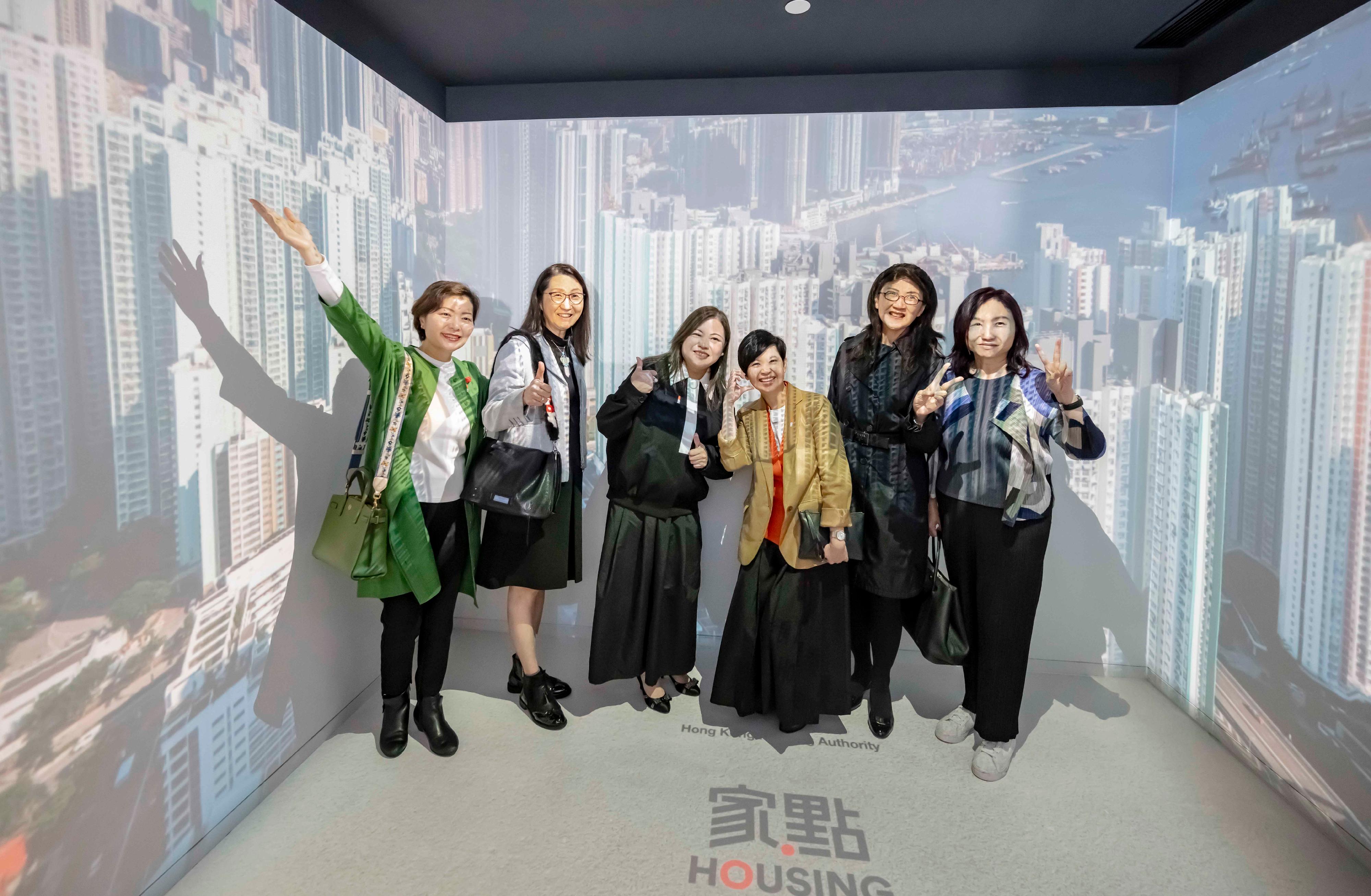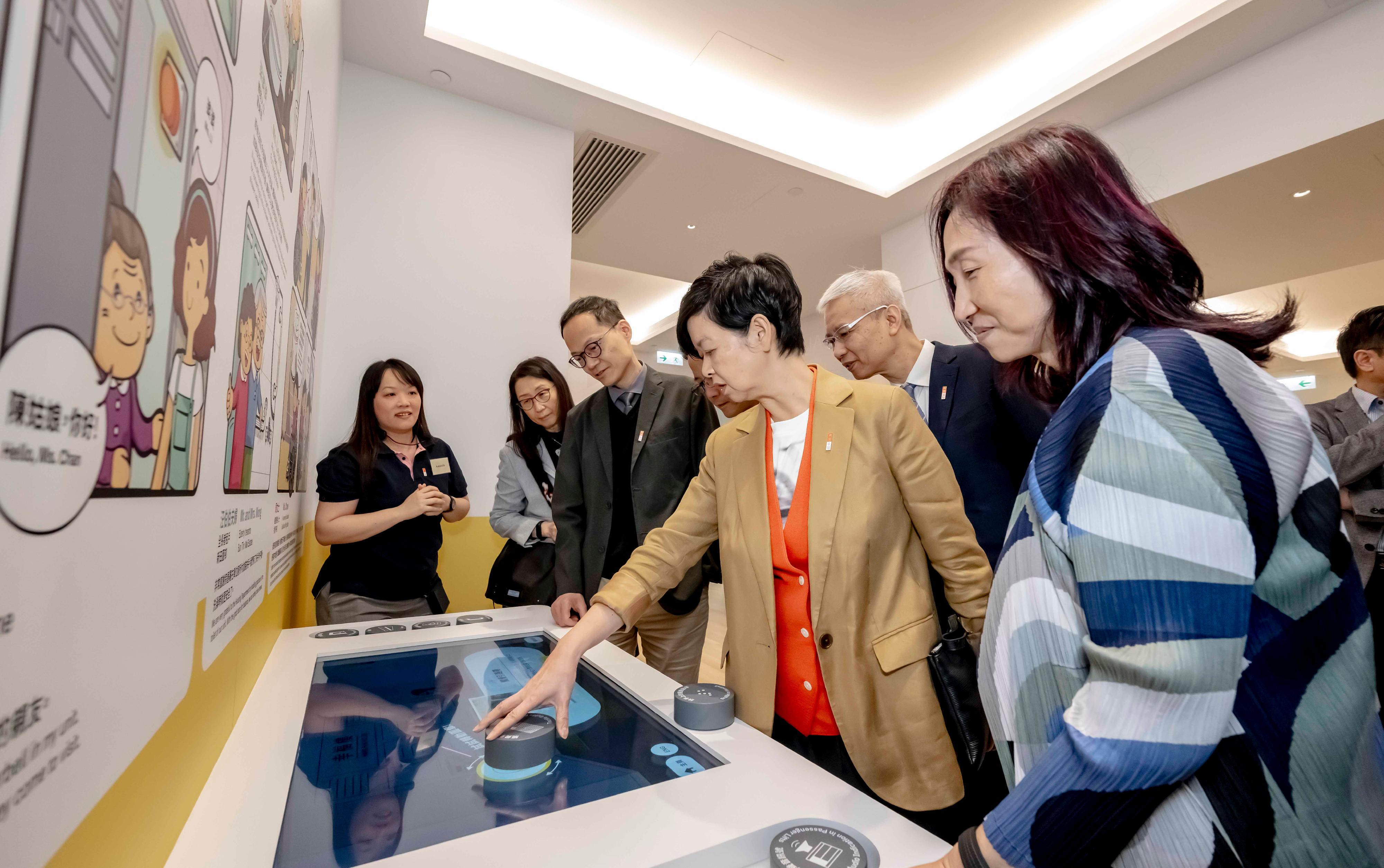Following is a question by Dr the Hon Johnny Ng and a written reply by the Secretary for Culture, Sports and Tourism, Mr Kevin Yeung, in the Legislative Council today (November 20):
Question:
It has been reported that Hong Kong athletes have performed tremendously well in various international sports events in recent years, and the Culture, Sports and Tourism Bureau is committed to promoting the development of sports in Hong Kong through promoting sports in the community, supporting elite sports, promoting Hong Kong as a centre for major international sports events, enhancing professionalism and developing sports as an industry. In this connection, will the Government inform this Council:
(1) whether it has compiled statistics on the economic benefits and employment opportunities brought about by major sports events to Hong Kong in the past three years, and whether it has estimated the relevant data for the next three years;
(2) whether the authorities will implement measures and step up publicity and education to enhance the professional identity and social status of athletes, thereby encouraging more potential young people to pursue careers as full-time athletes and promoting the development of the sports industry, and enhance the public’s sense of national identity through increased participation of Hong Kong athletes in international sports events;
(3) whether it will allocate additional resources to encourage universities and tertiary institutions to offer more degree programmes related to sports and conduct more research on sports science, thereby nurturing more professional talents of the sports industry, promoting the industrialisation of sports, and elevating the level of sports development in Hong Kong;
(4) whether it will put forward more measures and tax incentives to encourage the business and private sectors to give financial support to sports events, thereby increasing the incentive to promote the development of the sports industry; and
(5) as it is learnt that sports events have been regarded as an industry and the development of sports events have been promoted around the world, whether the Government will evaluate the effectiveness of the current policies to promote sports development and formulate a longer-term sports policy and a development blueprint for the sports industry, including studying whether it is necessary to further increase resources, set clearer development goals and explore the development of new sports with a view to deepening and strengthening the promotion of the development of the local sports industry?
Reply:
President,
​It is the Government’s policy to promote the development of sports through a five-pronged approach, namely, by promoting sports in the community, supporting elite sports, promoting Hong Kong as a centre for major international sports events, enhancing professionalism and developing sports as an industry; which include strengthening the support to elite athletes, attracting major international sports events to Hong Kong and further promoting sports development through enhanced professionalism in the sports sector and the development of sports as an industry.
My reply to the five parts of the question is as follows:
(1) According to the statistics released by the Census and Statistics Department in August 2024, the value added from sports and related activities (including major sports events) at basic prices, and the employment in sports and related activities from 2020 to 2022 are tabulated below:
| Year |
2020 |
2021 |
2022 |
Value added from sports and related activities at basic prices
(Percentage of GDP) |
$31 billion
(1.2 per cent) |
$38 billion
(1.4 per cent) |
$38 billion
(1.4 per cent) |
Employment in sports and related activities
(Percentage of total employment) |
75 000 persons
(2.0 per cent) |
74 000 persons
(2.0 per cent) |
74 000 persons
(2.1 per cent) |
Four component domains are included in the sports and related activities above. They are:
- Operation of sports facilities and sports clubs, including sports education;
- Manufacturing, import/export, wholesale and retail of sports-related goods;
- Sports tourism; and
- Supporting services to sports and other sports activities.
With more major international sports events taking place in Hong Kong, and the opportunities brought by the opening of the Kai Tak Sports Park in the first quarter of 2025, we anticipate that the value added from sports and related activities and their employment in the coming three years will increase as compared with the past three years.
(2) The Government endeavours to offer all-round support and assistance for elite athletes. In 2024-25, the Government will allocate about $941.6 million from the Elite Athletes Development Fund to the Hong Kong Sports Institute (HKSI), representing an increase of more than 40 per cent over the allocation five years ago (2019-20). Apart from supporting athletes’ training needs, HKSI also provides comprehensive support services, including dual career development in sports and education, insurance, meals and accommodation. HKSI also provides direct financial grants to elite athletes, allowing them to focus on training in a financially stable environment. In addition, the Government allocates resources to support retired athletes in their education, transformation and career pursuits, meeting their needs in different phases. The comprehensive support above does not only help elite athletes to focus on training and achieve good results, but also helps them to plan their career as early as possible and to pursue second career after retirement. This is conducive to attracting more young people with potential to become elite athletes.
Hong Kong athletes have achieved outstanding results in international competitions in recent years, capturing two gold and two bronze medals, as well as three gold, four silver and one bronze medals respectively at the 2024 Paris Olympic Games (OG) and Paris Paralympic Games (PG). It was the first time that Hong Kong has won more than one gold medal at the same OG. The Government organised large-scale events to celebrate the accomplishment of our athletes after the OG and PG, which include a luncheon hosted by the Chief Executive and a large-scale welcome home reception. These events demonstrated our appreciation to the efforts of our athletes, commended their achievements and promoted their success. Hong Kong citizens were proud of the excellent results attained by our athletes in the international sports arena. Not only did it spark an Olympic craze across the city and boost the culture of “Sport for All”, it also provided young talents with role models for pursuing excellence, encouraging them to become full-time athletes.
As national and Hong Kong athletes participate in different international competitions, Hong Kong citizens are cheering for them, supporting them to excel and bring glory to the country, as well as sharing their joy of achievements. We believe that this would foster social cohesion and strengthen sense of national identity and sense of belonging to our country among the public.
(3) As for the University Grants Committee-funded universities, they have all along been able to flexibly allocate their resources for different programmes having regard to their roles and positioning as well as market demands. At present, the Hong Kong Baptist University, the Chinese University of Hong Kong and the Education University of Hong Kong (EdUHK) offer undergraduate programmes related to sports science and sports management. Amongst others, the EdUHK has introduced a new Bachelor of Science (Honours) in Sports Science and Coaching programme starting from the 2022/23 academic year. The universities will continue to support the development of Hong Kong by nurturing a wide range of talents in response to the manpower needs of different sectors.
As regards the self-financing post-secondary education sector, self-financing institutions similarly have the flexibility to develop programmes that meet market needs and adjust the intake places of relevant programmes. At present, the Hong Kong Metropolitan University, Technological and Higher Education Institute of Hong Kong under the Vocational Training Council, and HKCT Institute of Higher Education, operate undergraduate programmes relating to sports management.
Promoting the development of sports medicine and sports science is among the key tasks of the Government. In 2022, the Government and the Hong Kong Jockey Club Charities Trust jointly funded a total of $300 million to set up the Sports Science and Research Funding Scheme (the Scheme), to enhance the competitiveness of athletes in international sports events through research in sports science and sports medicine. Since the launch of the Scheme, 27 sports science and research projects have been approved, amounting to a total of $183 million. Some of these technologies developed have been applied to athletes to help enhance their performance. As announced in the 2024 Policy Address recently delivered, HKSI has set up a committee to oversee the development of sports medicine and sports science, ensuring that the sports medicine and sports science services can more effectively support the training needs of athletes and enhance the professional standard of the related services. Furthermore, HKSI and the Hong Kong Academy of Medicine signed a Memorandum of Understanding on November 12, 2024 to strengthen exchanges in the field of sports medicine and science, while providing more training and professional development opportunities for healthcare professionals, thereby helping Hong Kong nurture more sports medicine and science professionals. The Government will continue to formulate policies to develop and promote sports expertise to further enhance sports development.
(4) The Government has launched the “M” Mark System to provide funding support in the form of matching fund and direct grant to organisers to host major sports events, thereby solidifying Hong Kong’s status as a centre for major international sports events. The funding provides incentives for organisers to stage sports events with commercial elements. In 2024-25, a total of 20 major sports events have been awarded the “M” Mark status, among which 18 events have been able to secure sponsorship offered by commercial organisations.
At present, should a commercial organisation sponsors a sports event in order to promote its own business, the sponsorship concerned will be treated as marketing expenses and can be used to claim for deduction. Upon a comprehensive review (including the implications on other charitable services subsequent to the introduction of special tax arrangement under a policy), the Government will not consider introducing additional tax concessions for expenses on sponsoring local sports events for the time being.
(5) The Government is committed to developing sports in Hong Kong through enhanced professionalism in the sports sector and the development of sports as an industry. With the opening of the Kai Tak Sports Park in the first quarter of 2025, and the co-hosting of the 15th National Games with Guangdong and Macao in late 2025, there will be increasing demand for manpower in the sports-related industry, in areas such as coaching, refereeing, sports science, sports medicine, organisation of major sports events, facilities management and marketing. To promote professionalism and development of sports industry in Hong Kong, and to fully realise Hong Kong’s potential, the Government will continue to keep in view and analyse the recent developments in sports industry in Hong Kong. The Government will continue to assess the challenges, opportunities and conditions required for developing the sports industry in Hong Kong, including professionalisation of sports workforce and increased commercialisation, and to implement appropriate measures to increase contribution of the sports industry to the economy.
read more




